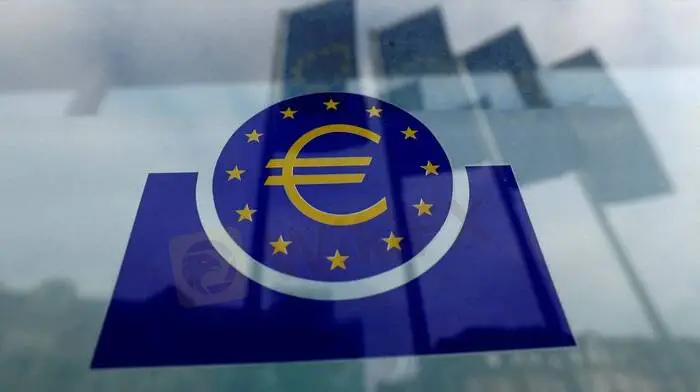简体中文
繁體中文
English
Pусский
日本語
ภาษาไทย
Tiếng Việt
Bahasa Indonesia
Español
हिन्दी
Filippiiniläinen
Français
Deutsch
Português
Türkçe
한국어
العربية
Markets pare rate hike bets as West gets tough on Russia
Abstract:Euro zone money markets further scaled back expectations for rate hikes from the European Central Bank on Monday as the West ramped up sanctions against Russia, unleashing fresh uncertainty about the outlook for economic growth.

Investors further reduced bets on Monday for interest rate hikes from major central banks this year, as the West ramped up sanctions against Russia for invading Ukraine, creating fresh uncertainty about the world economic outlook.
Aggressive rate-hike bets priced in by markets from the likes of the U.S. Federal Reserve, Bank of England and European Central Bank had already come off in the past week.
But they eased further on Monday, with money markets increasingly confident that the ECB will move later rather than sooner since tougher Russia sanctions which include blocking some banks from the SWIFT global payments system and an oil price surge will hurt the euro zone economy.
Rate futures significantly pared back the odds of a 50 basis-point tightening by the Fed at its meeting this month to 6.5% late on Monday, from about 23% roughly a week ago. It was as high as 70% early in the month after U.S. consumer price data showed annual inflation hitting a 40-year high.
The Fed, however, is widely expected to push through with a quarter-point rate increase at the two-day March meeting.
Fed Chair Jerome Powell will appear before Congress this week for his semiannual Monetary Policy Report testimony in the final week leading up to the pre-meeting blackout period.
“The near-term effects of the crisis appear to be inflationary, but the hit to growth is tougher to discern and puts central bankers in a very tough spot,” wrote Wells Fargo in a research note.
“We expect Chair Powell to hint strongly in his congressional testimony that the Fed will go 25 basis points, not 50 basis points, at the March 16 meeting.”
In Europe, markets have fully priced in a first, 10 basis- point rate hike from the ECB at its September meeting, having positioned for a June move following the ECBs hawkish pivot earlier this month .
They anticipate 30 basis points worth of tightening in total by year-end, or the equivalent of three, 10 bps hikes. Thats down from 35 bps late last week and as much as 50 bps just a couple of weeks ago.
“It is logical for curves to shave off the likelihood of rate hikes in Europe and the U.S.,” said ING senior rates strategist Antoine Bouvet. “It is too early to assess the economic impact of the current crisis but the impact on growth will be negative, we just dont know by how much.”
A Bank of Canada meeting on Wednesday could prove a gauge of how central banks in the West are assessing the potential impact of Russias attack on Ukraine on their growth and inflation outlook.
Canadas central bank is widely expected to lift rates by 25 basis point in its first hike since October 2018, with just over six rate moves in total priced in by year-end.
The Bank of England is also expected to lift rates by 25 bps in March, although bets on a more aggressive 50 bps hike have come off the table.
ECB chief economist Philip Lane has told fellow policymakers that the Ukraine conflict may reduce the euro zones economic output by 0.3%-0.4% this year, four people close to the matter told Reuters on Friday.
“It becomes very tricky for them to navigate, especially the ECB, whereas for the Fed this will be more an inflation issue than a growth issue, so they will continue to tighten – maybe not 50 bps but 25 bps – they dont want to be the source of theatrics in this environment,” said Salman Ahmed, global head of macro at Fidelity International.

Disclaimer:
The views in this article only represent the author's personal views, and do not constitute investment advice on this platform. This platform does not guarantee the accuracy, completeness and timeliness of the information in the article, and will not be liable for any loss caused by the use of or reliance on the information in the article.
Read more

JustForex vs JustMarkets: A Comprehensive Comparison in 2025
Selecting the right forex broker can make the difference between trading success and frustration for most investors, especially retail investors. As retail traders gain unprecedented access to global markets, the choice between platforms like JustForex and JustMarkets becomes increasingly significant. Both brokers offer some shining features within the forex and CFD trading space, but their approaches differ in some areas.
Vault Markets Review 2025: Live & Demo Accounts, Withdrawal to Explore
Vault Markets, a South African-based broker, has attracted much attention in recent days, particularly within its region. This online broker only offers access to focused trading opportunities on Indices, Currencies, Energies, and Metals, yet it shines on low minimum deposits plus various bonus programmes, which would encourage more investors, especially beginners, to trade with a small budget. However, Vault Markets operates outside of the authorized scope, so we don't consider it solid to trade with.

FBK Markets Review 2025: Live & Demo Accounts, Withdrawals to Explore
FBK Markets, a young South African forex broker, targets both beginners and experienced traders within this region. This broker shines at its low minimum deposit required, 100% deposit bonus, and flexible account options, yet we cannot consider it reliable as it operates without any regulation. Furthermore, it features an approximately 70% withdrawal failure rate.

OlympTrade Review 2025: Trading Accounts, Demo Account, and Withdrawal to Explore
OlympTrade is a relatively young online broker registered in Saint Vincent and the Grenadines, a shady spot with a booming of unlicensed entities. Tradable assets on the OlymTrade are not extensive, and this broker does not tell many essential trading conditions. As for trading platforms, I found trades can only operated on a simple web-based trading platform, no Metatrader platform at all.
WikiFX Broker
Latest News
Forex Trading: Scam or Real Opportunity?
The Hidden Tactics Brokers Use to Block Your Withdrawals
Beware: Online Share Buying Scam Costs 2,791,780 PHP in Losses
5 things I wish someone could have told me before I chose a forex broker
Unmasking a RM24 Million Forex Scam in Malaysia
U.S., Germany, and Finland Shut Down Garantex Over Money Laundering Allegations
Gold Prices Fluctuate: What Really Determines Their Value?
Dollar Under Fire—Is More Decline Ahead?
What Impact on Investors as Oil Prices Decline?
Is the North Korea's Lazarus Group the Biggest Crypto Hackers or Scapegoats?
Currency Calculator






